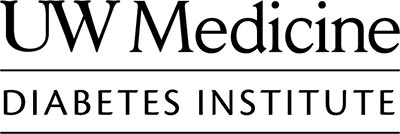Dedicated to understanding the molecular mechanisms of diabetes and diabetes-associated cardiovascular disease.
Insulin resistance, monocytosis and cholesterol transporters. Insulin resistance is a major metabolic defect in obesity and is associated with increased risk of type-2 diabetes and cardiovascular disease (CVD). Chronic, low-grade inflammation has emerged as an important contributor to the etiology of insulin resistance in obesity and type-2 diabetes in recent years. In fact, adipose tissue macrophages appear to be responsible for much of the increase in inflammation in adipose tissue with obesity. There is also a strong association between obesity and leukocytosis, particularly of the myeloid lineage. Increased numbers of circulating leukocytes are prevalent in obesity and predict the development of type-2 diabetes. Studies also indicate that a feed-forward loop exists in obesity such that inflamed adipose tissue stimulates the production of more monocytes, leading to an exacerbation of inflammation and associated insulin resistance progress. These studies suggest that altering this feed-forward loop may affect adipose tissue inflammation and insulin resistance in obesity. ATP-binding cassette transporter A1 (ABCA1) and ATP-binding cassette transporter G1 (ABCG1) protect against cholesterol accumulation in macrophages by transporting cholesterol to apoA-I and high-density apolipoprotein (HDL) from cells. Loss-of-function mutations in ABCA1 cause a severe HDL deficiency syndrome characterized with deposition of cholesterol in tissue macrophages and increased inflammation. We and other have reported that ABCA1 or both ABCA1 and ABCG1-deletion in macrophages increases pro-inflammatory cytokine expression in response to pro-inflammatory insults such as lipopolysaccharide (LPS) or saturated fatty acids. Hematopoietic ABCA1 or both ABCA1 and ABCG1 deletion is also associated with profound monocytosis. These studies suggest that ABCA1 alone and both ABCA1 and ABCG1 may be key gatekeepers for the feed-forward loop between monocytosis and macrophage inflammation in obesity. Indeed, our recent study shows that hematopoietic ABCA1 deletion promotes monocytosis, increases adipose macrophage inflammation and worsens insulin resistance in diet-induced obesity. However, how hematopoietic ABCA1 and ABCG1 regulate monocytosis, macrophage inflammation and insulin resistance is unclear. Our long term goals are to understand the roles and mechanisms of hematopoietic ABCA1 and ABCG1 on monocytosis and insulin resistance. These studies will help develop treatment strategies to target cholesterol transporter ABCA1 and ABCG1 pathway in hematopoietic cells to treat or prevent insulin resistance, diabetes and CVD.
Regulation of ABCA1 functions by signaling pathway. The inverse relationship between HDL levels and cardiovascular disease (CVD) has led to the widely held view that raising HDL levels will be cardio-protective. Recent clinical trials using an inhibitor of cholesterol ester transfer protein to raise HDL had the unexpected effect of increasing cardiovascular complications. Although some of this may have been due to off-target drug effects, it is also possible that this approach generated dysfunctional HDL that had harmful rather than beneficial activity. One of the mechanisms by which HDL is cardio-protective is its ability to promote reverse cholesterol transport (RCT). In RCT, excess cholesterol is returned from the peripheral cells, such as the lipid-laden macrophages of an atherosclerotic plaque, to the live for excretion or re-use. Importantly, studies suggest that impaired macrophage cholesterol efflux capacity of HDL better predicts cardiovascular disease status than does HDL cholesterol or apoA-I. ATP-binding cassette transporter A1 (ABCA1) is essential for HDL synthesis and reverse cholesterol transport. Indeed, up-regulating RCT by ABCA1 pathway has been shown with great potential in reducing CVD in animal models. It is therefore vital to increase our understanding of this pathway and its cardio-protective functions. Our studies indicate that the interaction of apoA-I or its mimetic peptides with ABCA1 activates the JAK2/STAT3 pathway to promote cholesterol efflux and decrease inflammation. Understanding the functions of ABCA1 as an anti-inflammatory receptor as well as a cholesterol exporter and identifying apoA-I mimetic peptides and small molecules based on their ability to activate ABCA1/JAK2/STAST3 pathway as an agonists will open new opportunities in the development of therapeutic agents that target ABCA1 pathways for treating CVD. In addition, the anti-inflammatory properties of ABCA1 could potentially be exploited as a therapeutic target for other inflammatory diseases that involve macrophage infiltration and inflammation, such as obesity, inflammatory bowel disease and rheumatoid arthritis

Chongren Tang, PhD

Carl Storey
Contact Us
UW Medicine Diabetes Institute
750 Republican Street, Box 358062
Seattle, WA 98109
Chongren Tang: (206) 521-7586
Laboratory: (206) 543-5564
Fax: (206) 543-3567
Chongren Tang: Crtang@u.washington.edu
Carl Storey: cs3@uw.edu
To inquire about Postdoctoral and Graduate Student Openings click on: Crtang@u.washington.edu
